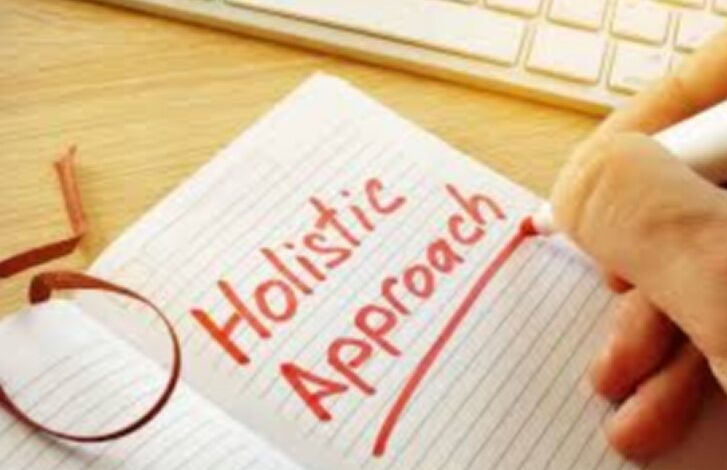The Benefits of Holistic Approaches in Addiction Treatment

Addiction is a complex and multifaceted condition that affects individuals physically, emotionally, and mentally. Traditional addiction treatments, including therapy and medication, are essential components of recovery. However, the integration of holistic approaches can significantly enhance the effectiveness of an addiction treatment center by addressing the whole person, not just the symptoms of addiction. Holistic methods focus on healing the body, mind, and spirit, providing a comprehensive pathway to recovery.
Understanding Holistic Approaches
Holistic approaches in addiction treatment aim to treat the person as a whole rather than just focusing on the addiction itself. This philosophy recognizes that addiction affects all aspects of a person’s life, including their physical health, emotional well-being, mental health, and spiritual needs. By incorporating various holistic practices, individuals can achieve a balanced and sustainable recovery. Some common holistic methods include:
- Yoga and Meditation: These practices help individuals develop mindfulness, reduce stress, and improve emotional regulation.
- Nutrition Therapy: Proper nutrition can restore physical health and balance brain chemistry, which is often disrupted by substance abuse.
- Acupuncture: This traditional Chinese medicine technique can help alleviate withdrawal symptoms and reduce cravings.
- Art and Music Therapy: Creative therapies provide emotional expression and can be therapeutic for dealing with trauma and stress.
- Exercise: Regular physical activity promotes overall well-being and helps manage anxiety and depression.
- Mindfulness and Stress Management: Techniques that teach individuals how to manage stress can prevent relapse and support long-term recovery.
The Role of Yoga and Meditation
Yoga and meditation are cornerstone practices in holistic addiction treatment. They offer numerous benefits that address both the physical and mental aspects of recovery.
Yoga
Yoga combines physical postures, breathing exercises, and meditation to promote physical strength, flexibility, and mental clarity. In the context of addiction treatment, yoga can:
- Reduce Stress: The physical activity and focused breathing in yoga help reduce stress and anxiety, common triggers for relapse.
- Improve Physical Health: Yoga helps restore the body’s strength and flexibility, which can be compromised by substance abuse.
- Enhance Emotional Regulation: Yoga teaches mindfulness, which can help individuals become more aware of their emotions and manage them more effectively.
Meditation
Meditation is a practice of focused attention and mindfulness. It helps individuals develop a deeper awareness of their thoughts and feelings, leading to better self-control and emotional regulation. Benefits of meditation in addiction recovery include:
- Increased Mindfulness: Meditation helps individuals stay present and aware, reducing impulsive behaviors that can lead to relapse.
- Reduced Cravings: Regular meditation practice can reduce the intensity and frequency of cravings.
- Enhanced Emotional Well-Being: Meditation promotes a sense of calm and well-being, helping individuals cope with the emotional challenges of recovery.
Nutrition Therapy: Healing from the Inside Out
Nutrition plays a crucial role in addiction recovery. Substance abuse often leads to poor dietary habits and nutritional deficiencies, which can affect both physical and mental health. Nutrition therapy focuses on restoring the body’s health through a balanced diet and proper supplementation.
Benefits of Nutrition Therapy
- Restores Physical Health: A healthy diet helps repair the damage caused by substance abuse, improving overall physical health.
- Balances Brain Chemistry: Proper nutrition supports the production of neurotransmitters, which are essential for mood regulation and cognitive function.
- Supports Detoxification: Nutrient-rich foods can aid the body’s natural detoxification processes, helping eliminate toxins accumulated during substance abuse.
- Boosts Energy and Mood: A balanced diet provides the energy needed for daily activities and supports a stable mood, reducing the risk of relapse.
Acupuncture: An Ancient Healing Practice
Acupuncture is a traditional Chinese medicine technique that involves inserting thin needles into specific points on the body. This practice can be beneficial in addiction treatment in several ways:
Benefits of Acupuncture
- Reduces Withdrawal Symptoms: Acupuncture can alleviate symptoms of withdrawal, such as nausea, headaches, and anxiety.
- Decreases Cravings: By stimulating certain points, acupuncture can reduce cravings for drugs and alcohol.
- Promotes Relaxation: Acupuncture sessions promote relaxation and reduce stress, aiding in overall emotional well-being.
Art and Music Therapy: Creative Expression for Healing
Creative therapies such as art and music therapy provide individuals with a means of expression and emotional release. These therapies can be particularly beneficial for individuals who have difficulty expressing their emotions verbally.
Art Therapy
Art therapy involves using visual arts to explore and express emotions. It can help individuals:
- Process Trauma: Creating art can be a therapeutic way to process and heal from traumatic experiences.
- Express Emotions: Art provides a non-verbal outlet for expressing complex emotions.
- Improve Self-Esteem: Creating art can boost self-esteem and provide a sense of accomplishment.
Music Therapy
Music therapy uses music to address emotional, cognitive, and social needs. It can help individuals:
- Manage Stress: Listening to or creating music can be a powerful tool for stress reduction.
- Enhance Mood: Music can elevate mood and provide a sense of joy and relaxation.
- Facilitate Communication: Music therapy can help individuals communicate their feelings and experiences more effectively.
Exercise: Building Physical and Mental Resilience
Regular physical activity is an essential component of holistic addiction treatment. Exercise provides numerous benefits that support both physical and mental health.
Physical Benefits
- Improves Physical Health: Exercise helps repair and strengthen the body, improving overall physical health.
- Increases Energy Levels: Regular physical activity boosts energy levels, helping individuals stay active and engaged in their recovery.
Mental Benefits
- Reduces Stress and Anxiety: Exercise is a natural stress reliever and can reduce symptoms of anxiety and depression.
- Enhances Mood: Physical activity stimulates the release of endorphins, which promote feelings of happiness and well-being.
- Improves Sleep: Regular exercise can improve sleep patterns, which are often disrupted by addiction.
Mindfulness and Stress Management: Key to Long-Term Recovery
Mindfulness and stress management techniques are crucial for preventing relapse and supporting long-term recovery. These practices teach individuals how to stay present and manage stress effectively.
Mindfulness Practices
Mindfulness involves paying attention to the present moment without judgment. It can help individuals:
- Increase Self-Awareness: Mindfulness practices increase awareness of thoughts and feelings, helping individuals recognize and address triggers.
- Enhance Emotional Regulation: Mindfulness techniques can improve emotional regulation, reducing impulsive behaviors that can lead to relapse.
- Promote Relaxation: Mindfulness practices promote relaxation and reduce stress, supporting overall well-being.
Stress Management Techniques
Effective stress management is essential for maintaining sobriety. Techniques such as deep breathing, progressive muscle relaxation, and guided imagery can help individuals manage stress and prevent relapse.
Integrating Holistic Approaches with Traditional Treatment
While holistic approaches offer numerous benefits, they are most effective when integrated with traditional addiction treatments. Combining holistic methods with therapy, medication, and other evidence-based practices creates a comprehensive treatment plan that addresses all aspects of addiction.
The Importance of Personalized Treatment Plans
Each individual’s experience with addiction is unique, and so should be their treatment plan. Personalized treatment plans that incorporate holistic approaches can better address the specific needs and preferences of the individual. By tailoring treatment to the individual, we can improve outcomes and support long-term recovery.
Addressing Co-Occurring Disorders
For individuals with co-occurring mental health and substance use disorders, holistic approaches can be particularly beneficial. These individuals often require a more comprehensive treatment plan that addresses both conditions simultaneously. Treatment for co-occurring disorders involves integrating traditional therapies with holistic methods to provide a balanced and effective approach to recovery.
Holistic Approaches in Different Treatment Settings
Holistic approaches can be incorporated into various treatment settings, including inpatient, outpatient, and residential programs. Each setting offers unique opportunities for integrating holistic practices into the recovery process.
Inpatient Treatment
Inpatient treatment provides a structured environment where individuals can focus on their recovery without distractions. Holistic approaches such as yoga, meditation, and nutrition therapy can be seamlessly integrated into daily routines, supporting overall well-being and enhancing the effectiveness of traditional treatments.
Outpatient Treatment
Outpatient treatment allows individuals to receive support while maintaining their daily responsibilities. Holistic approaches can be incorporated into outpatient programs through workshops, support groups, and individual sessions, providing ongoing support and promoting long-term recovery.
Residential Treatment
Residential treatment centers offer a comprehensive approach to addiction recovery, providing a supportive and immersive environment. In a residential setting, holistic practices such as acupuncture, art therapy, and mindfulness can be integrated into the daily schedule, providing continuous support and promoting healing on multiple levels.
Read also: The Importance of Gum Health – How to Keep Your Gums Healthy
Case Studies and Success Stories
To illustrate the effectiveness of holistic approaches in addiction treatment, consider the following case studies and success stories:
Case Study 1: Sarah’s Journey to Recovery
Sarah struggled with alcohol addiction for several years. Traditional treatments provided some relief, but she continued to experience cravings and emotional turmoil. After incorporating yoga and meditation into her treatment plan, Sarah found a new sense of balance and peace. Yoga helped her manage stress and anxiety, while meditation improved her emotional regulation. Today, Sarah is sober and continues to practice yoga and meditation as part of her daily routine.
Case Study 2: John’s Path to Healing
John battled opioid addiction and co-occurring depression. Traditional therapies helped, but John needed more comprehensive support. He enrolled in a program that combined traditional treatments with holistic approaches, including nutrition therapy and acupuncture. The nutritional support helped restore his physical health, while acupuncture reduced his cravings and withdrawal symptoms. John’s holistic treatment plan addressed his addiction and depression, leading to a successful recovery.
Research and Evidence Supporting Holistic Approaches
Research supports the effectiveness of holistic approaches in addiction treatment. Studies have shown that practices such as yoga, meditation, and acupuncture can reduce stress, improve mood, and support long-term recovery. For example, a study published in the Journal of Substance Abuse Treatment found that individuals who practiced yoga as part of their recovery program experienced significant reductions in stress and cravings. Another study in the Journal of Alternative and Complementary Medicine found that acupuncture effectively reduced withdrawal symptoms and cravings in individuals with substance use disorders.
The Future of Holistic Addiction Treatment
The future of addiction treatment lies in an integrated approach that combines traditional and holistic methods. As more research supports the benefits of holistic practices, addiction treatment centers are increasingly incorporating these approaches into their programs. The holistic treatment paradigm recognizes that recovery is not just about abstaining from substances but about healing the whole person.
Conclusion
Holistic approaches offer significant benefits in addiction treatment by addressing the physical, emotional, mental, and spiritual aspects of recovery. Practices such as yoga, meditation, nutrition therapy, acupuncture, and creative therapies provide a comprehensive pathway to healing. By integrating these holistic methods with traditional treatments, we can create personalized and effective treatment plans that support long-term recovery.
In a residential treatment center, holistic approaches can be particularly effective, providing continuous support and promoting healing on multiple levels. By embracing a holistic approach to addiction treatment, we can help individuals achieve lasting recovery and a balanced, fulfilling life.





